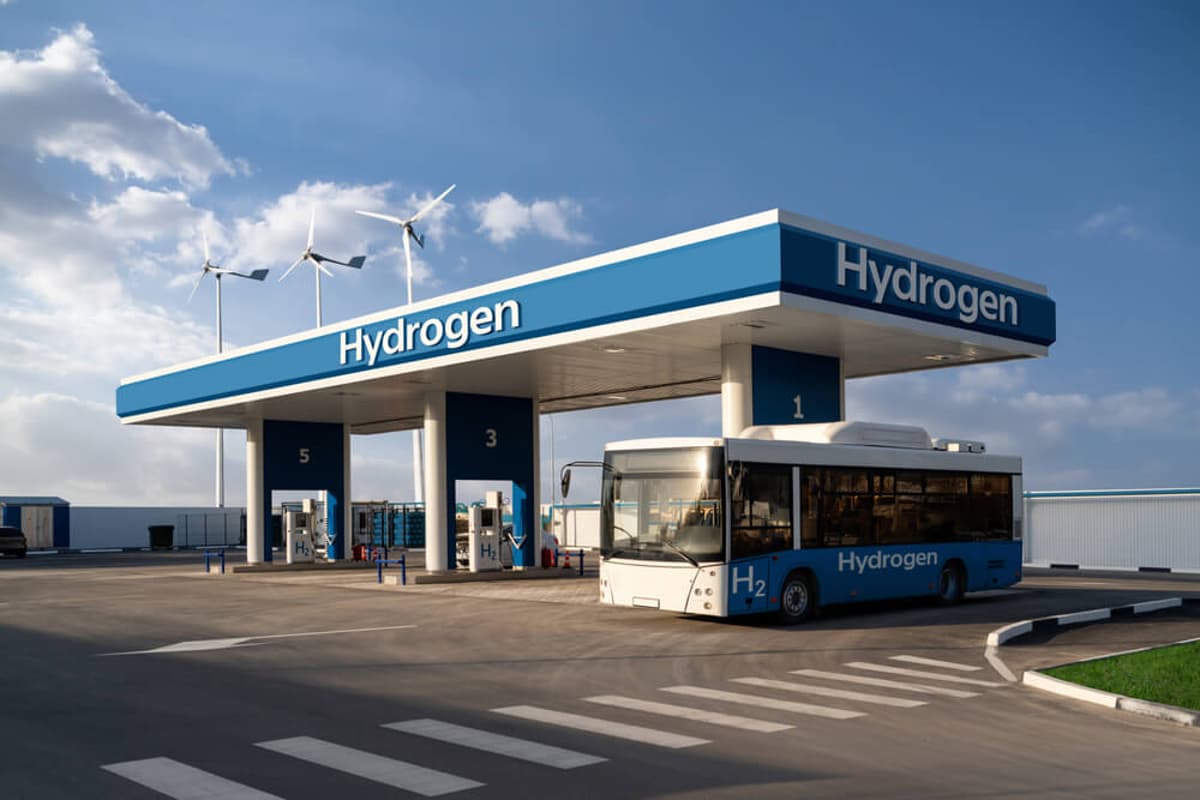Messer Advances Hydrogen Mobility with New Fuel Cell Buses in Kerpen
Key Ideas
- Messer has provided hydrogen and refuelling technology for 26 new hydrogen-powered fuel cell hybrid buses in Kerpen, Germany, set to replace the diesel fleet by the end of the month.
- The buses, with a 350km range per tank, are refuelled at a hydrogen filling station by Messer, where over 400 refuelling operations have already taken place, saving 65 tonnes of greenhouse gases.
- Messer is expanding hydrogen production capacity with a 10MW plant in Düren and is part of the Hyoffwind project in Zeebrugge, showing commitment to advancing green hydrogen technologies.
- Germany, although a leader in hydrogen mobility, faces challenges in refuelling infrastructure, with just over 90 public hydrogen stations. Funding initiatives like the EU's IPCEI Hydrogen programme aim to enhance electrolysis and refuelling networks to meet EU targets.
The industrial gas major Messer has played a significant role in advancing hydrogen mobility by providing hydrogen and refuelling technology for the launch of 26 new hydrogen-powered fuel cell hybrid buses in Kerpen, Germany. These buses, operated by Rhein-Erft-Verehrsgesellschaft (REVG), are set to completely replace the diesel fleet by the end of the month, showcasing a transition towards cleaner transportation. The buses offer a substantial 350km range per tank and are refuelled at a hydrogen filling station supplied by Messer at the REVG site. Since the trial operations commenced, with just two buses in November 2024, the fleet has grown to 26 buses, with over 400 refuelling operations carried out, resulting in the avoidance of approximately 65 tonnes of greenhouse gas emissions.
Messer is actively expanding its green hydrogen production capacity by engaging in projects like a joint venture with the district of Düren to construct a 10MW plant capable of producing up to 180kg of hydrogen per hour. Additionally, the company is involved in the Hyoffwind hydrogen electrolysis project in Zeebrugge, Belgium, demonstrating its commitment to sustainable energy solutions.
Despite Germany's leading position in hydrogen mobility, challenges persist in the development of refuelling infrastructure. With just over 90 public hydrogen refuelling stations in the country, efforts are being made to scale up electrolysis, distribution, and refuelling networks to meet ambitious EU targets, such as the mandate for hydrogen refuelling stations for heavy-duty vehicles every 200km along core TEN-T corridors by 2030. Initiatives like the EU's IPCEI Hydrogen programme, which has allocated €8.8bn ($10.04bn), are crucial in driving the advancement of hydrogen technologies and the overall decarbonization of the transport sector.
Topics
Public Transit
Renewable Energy
Infrastructure
Technology
Sustainability
Transportation
Emissions
Public Transport
Fuel Cell
Latest News
